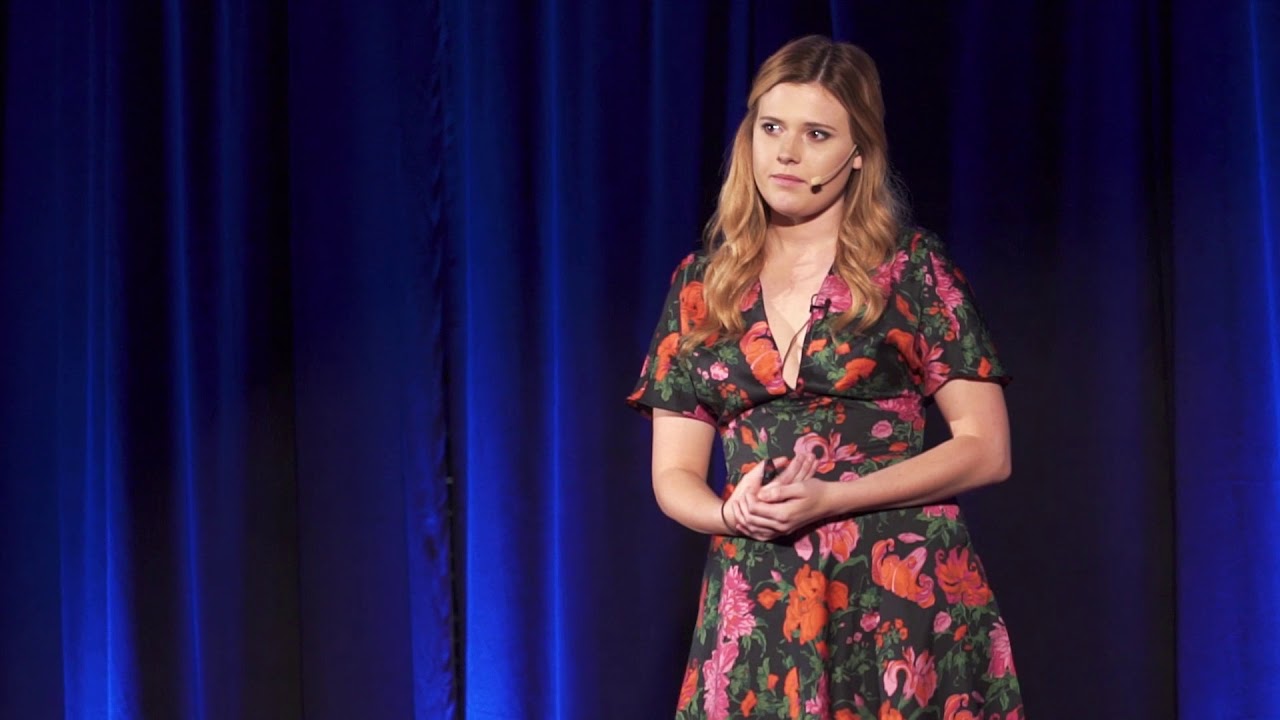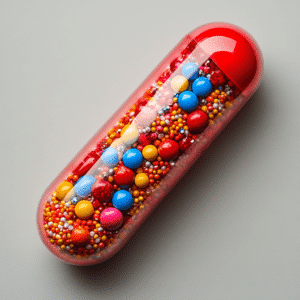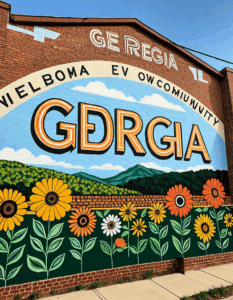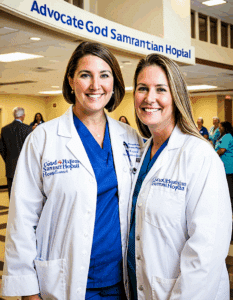Understanding the Impact of Addiction on Families
Family healing from addiction is more than just a personal journey; it’s a collective endeavor that involves the entire family unit. When a child or a loved one grapples with addiction, it often sends shockwaves through the family’s foundation, leading to profound emotional, financial, and social challenges. Let’s delve deeper into how addiction strains relationships and the mental well-being of family members, supported by both qualitative and quantitative data.
Emotional Turmoil
Addiction is like a storm that sweeps through the emotional landscapes of families, leaving a trail of stress, anxiety, depression, and even trauma. According to research by the National Institute on Drug Abuse in 2023, families dealing with addiction report significantly higher levels of emotional distress. These emotional challenges may manifest as constant worry, fear, and a feeling of helplessness. The highs and lows experienced by an addicted family member create an unpredictable environment, contributing to a heightened state of anxiety for everyone involved.
Financial Strain
In addition to emotional turmoil, addiction often places a substantial financial burden on families. Costs associated with treatment, legal issues, and lost productivity can cripple a family’s finances. A 2022 study by Harvard Medical School found that families supporting a loved one through addiction often face severe financial hardships. This financial strain can result in further stress and tension, exacerbating the already difficult situation.
Social Isolation
Addiction tends to isolate not only the individual but also their family members. Social stigmas and the chaotic nature of dealing with addiction can draw families away from their community and support networks. The 2023 docuseries “Healing Together: Families in Recovery” vividly portrays the social isolation many families experience. This withdrawal often reinforces feelings of loneliness and marginalization, making the recovery journey even more daunting.
Pathways to Family Healing from Addiction
Despite the profound challenges, there are effective pathways to foster family healing from addiction. Navigating this journey involves multiple strategies, each contributing to the overall recovery and well-being of the family unit.
1. Professional Counseling and Family Therapy
Professional counseling and family therapy are indispensable in addressing the intricate emotional and psychological issues that addiction brings into a family. Some prominent examples include:
Research from the American Psychological Association in 2023 indicates that family therapy significantly boosts recovery rates by strengthening bonds and enhancing communication within families. For instance, Interventions For Families play a crucial role in helping families understand the dynamics of addiction and develop healthier coping mechanisms.
2. Support Groups for Family Members
Support groups provide a communal setting where families affected by addiction can share their experiences and gain emotional support. Key examples include:
Case studies in the book “Surviving Together: Family Stories of Addiction” (2023) show how participants have found understanding, practical advice, and solace through such groups. Engaging with support groups can be a transformative experience, breaking the cycle of isolation and fostering a sense of community.
3. Educational Workshops and Programs
Education is a powerful tool in the fight against addiction. Understanding addiction and its effects can demystify the condition and empower families to take effective action.
A 2024 survey by UCLA Integrated Substance Abuse Programs found that families who participated in educational workshops reported a 40% increase in engagement with recovery processes compared to those who did not. Education can arm families with the knowledge and skills needed to support their loved ones more effectively.
4. Holistic and Mindfulness Practices
Incorporating holistic and mindfulness practices can significantly contribute to family healing from addiction. Holistic practices like yoga, meditation, and nutritional therapy can help reduce stress and promote mental resilience.
Scientific research from the Mind & Life Institute in 2023 supports the effectiveness of mindfulness practices in reducing stress and improving mental resilience among family members impacted by addiction. These practices can lay the groundwork for a more peaceful and connected family life.
| Aspect | Details |
| Stages of Family Healing | 1. Active Addiction/Use: Characterized by denial, fear, and rage. |
| 2. Transition: Initial steps towards acknowledging the need for help and support. | |
| 3. Early Recovery: Family therapy and support groups play critical roles, emphasizing open and honest dialogues. | |
| 4. On-Going Recovery: Continued support and accountability to sustain positive behavior and prevent relapse. | |
| Social Media & Online | Utilize social media and online forums to find local support groups and share experiences. |
| Therapeutic Support | Family therapy sessions encourage open communication about the difficulties of managing addiction. |
| Healthy Family Roles | – Accountability: Hold the addicted loved one accountable for their actions. |
| – Positive Reinforcement: Create rewards for positive choices and behavior. | |
| – Participation: Attend support groups with the addicted loved one, or seek specialized support groups for family members. | |
| Relationships Risks | Being in a relationship with an addicted partner can lead to emotional stress, chaos, emotional upheaval, and even violence. |
| Benefits of Support | – Enhanced understanding of addiction and recovery. |
| – Better emotional management and wellness. | |
| – Improved family unity and communication skills. | |
| External Resources | – Support Groups: Al-Anon, Nar-Anon, and other peer support groups for families. |
| – Local Organizations: Community health centers, non-profits, and religious organizations offering support and resources. | |
| Key Considerations | – Be patient with the process; healing takes time. |
| – Maintain boundaries to protect emotional and physical health. | |
| – Use professional resources and supports; do not try to manage it alone. |
Cultivating Long-term Resilience and Strength
Healing from addiction is not a linear journey; it’s a multi-faceted process that requires ongoing effort and support. Real families’ stories of overcoming adversity offer hope and a testament to the power of resilience. For example, Baltimore’s mayor has made significant strides in pushing for community programs that support families affected by addiction, showcasing the impact of strong leadership and community involvement.
Ultimately, the goal is to not only survive the impact of addiction but to emerge stronger and more resilient. By engaging in proactive steps like professional therapy, educational workshops, support groups, and holistic practices, families can rebuild their lives on a foundation of empathy, understanding, and love.
Conclusion
Family healing from addiction is a demanding but rewarding journey that can transform pain into a pathway to recovery and resilience. Families can find hope and unity amidst adversity, redefining relationships and restoring faith. By seeking support from professional counseling, engaging with support groups, educating themselves, and embracing holistic practices, families can navigate this challenging path with renewed strength and hope.
For more information and resources, visit Mothers Against Addiction. Let’s stand together, support each other, and heal as families united against addiction.
Family Healing from Addiction: Paths to Recovery
Getting through the tough times of addiction isn’t easy for any family, but there are some intriguing and unexpected ways to foster recovery and renewal together. Let’s dive into some fascinating tidbits and interesting knowledge that might just spark a new idea for families seeking to heal from addiction.
Interesting Histories
Did you know that communication is one of the vital elements in family healing from addiction? Indeed, open and honest conversation can make a world of difference. Just like The Landlady story hinted about surprising connections, building an environment based on trust can create a new path. Families may discover hidden strengths in their bonds when they communicate openly, something that Communication in addiction recovery shines a spotlight on.
Entertainment and Recovery
Surprisingly, engaging in wholesome entertainment can be a healing avenue. Watching programs together can create a sense of shared experience and joy. Shows like Attackertv have been known to offer light-hearted relief which indirectly supports emotional well-being during recovery phases. Similarly, diving into a thrilling anime series such as Dandadan Anime can provide an escape from daily struggles and stimulate positive emotions.
Breaking Family Patterns
Breaking The cycle Of addiction often means redefining family dynamics. It’s all about interrupting the old patterns and integrating healthier ones, as highlighted in Breaking the cycle of addiction. Did you know the Baltimore Mayor has initiatives to support families affected by addiction through community programs? These efforts aim to empower families to create new beginnings by providing support and resources, a promising step towards healing.
Unexpected Joys
Finally, finding moments of unexpected joy can sometimes come from the most unusual places. For instance, the quirky adventures of Men nakee can add a dash of humor and light-heartedness that’s much needed during recovery. These small moments bring big relief and a better outlook on life, fostering resilience in both individuals and families.
Remember, family healing from addiction is a journey filled with ups and downs, but with open communication, engaging activities, and breaking old patterns, every family has the potential to emerge stronger and more connected.

What can families do to cope with a loved one’s addiction?
Families can cope with a loved one’s addiction by starting with a search for local support groups through social media and online forums. It might also help to book a family therapy session to encourage open, honest dialogue about the challenges everyone is facing. This mix of external support and professional guidance can create a network of understanding and strategies to handle the situation better.
What is the role of family in addiction recovery?
Families play a crucial role in addiction recovery by holding their loved one accountable for their actions and rewarding positive behaviors. They can attend support groups with their loved one or join groups specifically for families of addicts. This healthy involvement can provide a balanced mix of support and accountability that is essential for sustained recovery.
What is the process of family recovery?
Family recovery starts with recognizing the emotional turmoil during a loved one’s active addiction, which includes denial, fear, and anger. Moving past this initial phase involves transitioning to acceptance, participating in early recovery activities like therapy, and embracing ongoing recovery efforts. Support groups and professional help can be pivotal in navigating these stages together.
Can you have a healthy relationship with an addict?
Having a healthy relationship with an addict is challenging due to the emotional stress and potential for abuse and chaos. Often, addiction leads to negativity and emotional upheaval, making it tough to maintain a stable and healthy relationship. Professional advice and support structures are essential to manage these dynamics and ensure safety and well-being for both partners.
What are three codependent behaviors in families with addiction?
Three common codependent behaviors in families with addiction include enabling the addict’s behavior, neglecting personal needs to focus on the addict, and taking on the addict’s responsibilities. These behaviors can inadvertently support the addiction, emphasizing the need for family members to seek help for themselves as well.
What is the Sinclair method?
The Sinclair method is a treatment approach for alcoholism that involves taking medication before drinking to reduce the craving for alcohol. Over time, this method aims to gradually eliminate the desire to drink by breaking the link between alcohol consumption and pleasure in the brain.
What are the family rules of addiction?
Family rules of addiction often include not talking about the addiction, not expressing emotions openly, and always prioritizing the addict’s needs over their own. These unspoken rules can prevent healing and perpetuate dysfunctional dynamics within the family.
What are positive reinforcements for recovering addicts?
Positive reinforcements for recovering addicts include verbal praise, small rewards for meeting recovery milestones, and recognizing and celebrating their progress. Support and encouragement can motivate the individual to continue making healthy choices.
What is the most important part of addiction recovery?
The most important part of addiction recovery is ongoing support and commitment to sobriety. This involves regular attendance at support groups, consistent therapy, and having a strong support network to navigate the challenges of staying sober.
What is the family reunification process?
Family reunification involves gradually rebuilding trust and communication within the family unit. It requires setting realistic expectations, establishing clear boundaries, and seeking the guidance of a therapist to facilitate the healing process.
What is step 7 in recovery?
Step 7 in recovery is about asking a higher power to remove personal shortcomings. It’s a step that focuses on humility and the willingness to let go of behaviors and traits that hinder recovery.
What are the four stages of recovery?
The four stages of recovery are active addiction/use, transition, early recovery, and ongoing recovery. Active use is marked by denial and intense emotions, transition involves the decision to seek help, early recovery focuses on building new habits, and ongoing recovery is about maintaining sobriety and personal growth.
How do love addicts behave?
Love addicts often behave in an obsessive and dependent manner, seeking constant reassurance and validation from their partners. Their relationships can be marked by intense highs and lows and an inability to maintain healthy boundaries.
What is it like loving an addict?
Loving an addict can be an emotional roller coaster filled with worry, stress, and emotional pain. The relationship often involves dealing with broken promises, financial issues, and a constant state of uncertainty, making it very difficult to maintain a healthy dynamic.
Why are drug addicts emotionally unavailable?
Drug addicts are often emotionally unavailable because their addiction takes precedence over their relationships. The substances they use numb their emotions, making it hard for them to connect on a deep, emotional level with others.
What to do when a loved one has a drug addiction?
When a loved one has a drug addiction, the first step is to educate yourself about addiction and seek support from local resources and support groups. Encouraging your loved one to seek professional help while also looking after your own mental and emotional well-being is crucial.
How to do an intervention with a family member?
An intervention with a family member involves gathering close friends and family to confront the person about their addiction. The goal is to express love and concern while encouraging them to seek professional help. It often helps to have a professional interventionist guide the process.
What are the family rules of addiction?
Overcoming a person’s addiction involves a combination of professional treatment, support from loved ones, and sustained commitment to sobriety. This process might include detoxification, counseling, support groups, and possibly medication-assisted treatment.




























